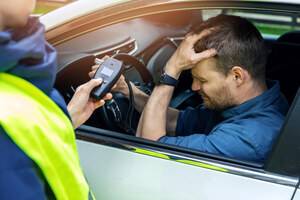 While a DWI is a criminal offense, it can also lead to civil charges being filed against a driver. This can be the case where an intoxicated driver injures another person and that person brings a personal injury claim against them seeking compensation for their injuries and losses. In this article, we will explore the key legal aspects that are required to succeed in a DWI-related personal injury claim.
While a DWI is a criminal offense, it can also lead to civil charges being filed against a driver. This can be the case where an intoxicated driver injures another person and that person brings a personal injury claim against them seeking compensation for their injuries and losses. In this article, we will explore the key legal aspects that are required to succeed in a DWI-related personal injury claim.
Standard of Proof
The burden of proof in a criminal case differs from that in a civil claim. In the former, it is up to the prosecution to establish ‘beyond a reasonable doubt’, that the defendant was under the influence when driving their vehicle. In a DWI case, the burden of proof is often easier to satisfy than in other types of criminal cases since the evidence is usually clear and difficult to dispute. This can include things like video footage from police body cams or dash cams, breath or blood test results from the defendant indicating their blood alcohol level exceeded the legal limit and reports from witnesses at the scene regarding the defendant’s behavior at the time.
In contrast to this, a lower burden of proof is required in civil cases. Here, the plaintiff needs to prove their case by a preponderance of the evidence. This means they must show that it is more likely than not that the facts they are asserting are true. In order for the plaintiff to be compensated for their injuries, they must establish that the defendant’s negligent actions or inactions were the cause of their accident and injuries.
Negligence requires four elements to be proven:
Duty of Care
The plaintiff needs to prove that the defendant owed them a duty of care. This is a legal duty to act with reasonable care to avoid harming others. This element of negligence is usually fulfilled in DWI cases as all motorists have a duty of care to other drivers and road users to operate their vehicles in a safe and responsible manner.
Breach of Duty
The plaintiff must prove that the defendant breached their duty of care. Drugs or alcohol can impair judgment, coordination and reaction times significantly increasing the risk of an accident. By driving while intoxicated, a driver puts other drivers and road users in harm's way, thus breaching their duty of care.
Causation
Negligence also requires the plaintiff to show that the defendant’s actions directly caused the injuries they sustained. This is established by proving that their injuries would not have arisen ‘but for’ the defendant’s conduct. In addition to this requirement, causation requires that the plaintiff’s injuries were a foreseeable consequence of the defendant’s actions.
Damages
For a plaintiff to receive compensation in a personal injury claim, they must demonstrate they suffered actual losses for which they can be legally and financially compensated. These are referred to as damages and include matters such as:
● Past and future medical expenses
● Rehabilitation costs
● Lost wages and loss of future earning capacity
● Emotional distress
● Pain and suffering
● Loss of consortium
● Property damage
● Loss of enjoyment of life
READ MORE DUI LEGAL NEWS
Individuals who drive while intoxicated should be aware that their actions have far-reaching consequences and can result in both criminal and civil actions being brought against them. As well as endangering their own lives and those of others, individuals who drive while intoxicated risk financial penalties in terms of fines and compensation, and may also face lengthy prison terms.
